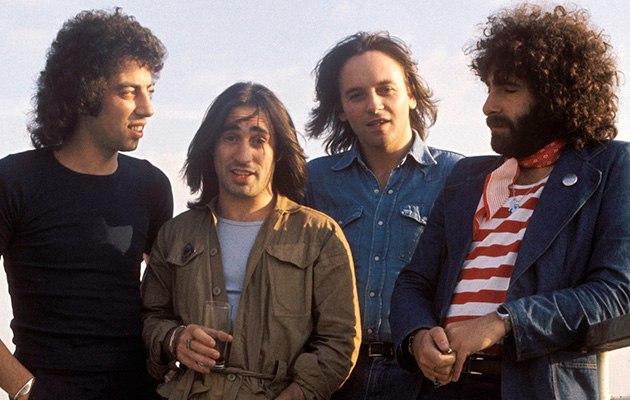How four Manchester studio obsessives created their very own sonic playground and in the process came up with the band’s first, somewhat controversial, No 1 hit… Words: Tom Pinnock ________________________________ When the owners of a Stockport hi-fi shop turfed out their upstairs tenants in 1...
How four Manchester studio obsessives created their very own sonic playground and in the process came up with the band’s first, somewhat controversial, No 1 hit… Words: Tom Pinnock
________________________________
When the owners of a Stockport hi-fi shop turfed out their upstairs tenants in 1968, they unwittingly created one of the coming decade’s most inventive British pop groups.
“I had some finance behind me then,” remembers former Mindbender Eric Stewart, who regularly used Inter-City Studios, located on the floor above the shop, to record demos. “I said, ‘Let’s start a new studio. A proper professional studio.’ We found a lovely office building and built a really serious studio, control room and offices, and that was Strawberry Studios.”
Strawberry allowed Stewart, collaborator Graham Gouldman and anarchic former art students Kevin Godley and Lol Creme – all talented singers and songwriters – to submerge themselves in writing and recording, without time restrictions or outside interference from labels, producers or engineers.
“We were carrying on in The Beatles’ tradition of experimentation,” says Gouldman. “Without Strawberry, there would have been no 10cc.”
While 10cc’s debut single “Donna”, a charming doo-wop pastiche, reached No 2 in the UK charts in late ’72, the failure of follow-up “Johnny Don’t Do It” made it clear to the quartet that they couldn’t rely on pastiche or formula. From then on, anything went so long as it excited its creators. “We were all quite eager to find new ways of doing things,” adds Stewart, “and we were picking up stuff from The Beach Boys and Steely Dan. We wanted to do something different.”
The public seemed to approve, with “Rubber Bullets” – its frantic rock’n’roll seasoned with Beach Boys harmonies, wry and controversial lyrics inspired by James Cagney movies, and acidic lead guitar – reaching the top of the UK charts in June 1973. It would be the first of a trio of chart-topping hits for the band across the decade, each one primarily sung by a different member of the group: “Rubber Bullets” by Creme, “I’m Not In Love” by Stewart, and “Dreadlock Holiday” by Gouldman.
“It was an open playing field back then,” recalls Kevin Godley. “It was a wonderful time to be making music. We were never precious about who did what. There was no ego involved. It was about getting an extraordinary finished result.”



